Four Pakistani Soldiers Killed By Iranian Attackers: Army
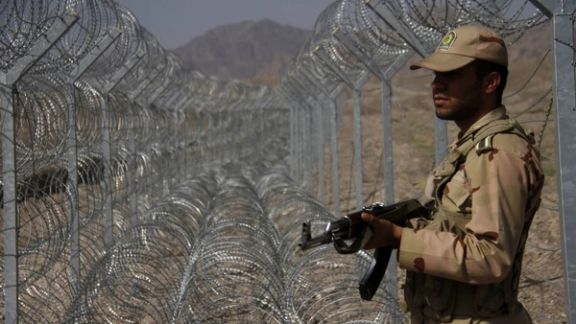
A group of Iranian assailants have killed four border patrol soldiers on Saturday, according to the Pakistani military.

A group of Iranian assailants have killed four border patrol soldiers on Saturday, according to the Pakistani military.
The incident occurred in Kech district in southwestern Baluchistan province, which shares a long lawless border with Afghanistan and Iran, the latest incident at the site of sporadic skirmishes, with border patrols on both sides targeted.
The army stated that Pakistani officials were making contact with the Islamic Republic to seek ways of preventing such incidents in future. However, so far no one has claimed responsibility.
Last year, Iran and Pakistan announced the formation of a joint working group to look after border management, including security, trade and travel issues between the two countries in a bid to retain calm.
The area is blighted by a range of militant elements. In 2018, at least 14 Iranian security personnel, including intelligence officials belonging to Iran’s Islamic Revolutionary Guard Corps, were abducted along the border, increasing tension between the two countries. The abductions were claimed by armed group Jaish al-Adl, affiliated with al-Qaeda,
Insurgent ethnic Baluch nationalist groups are also active in the area, fighting for a greater share of regional resources. The Baluch groups operate on both sides of the border.
Pakistani officials blame regional rivals for the increase in violence in the vast province. Every government coming to power attempts to crush the separatist militants to address the grievances fueling violence in the region.

Javad Emam, a prominent reformist politician in Iran says it is time for hardliner "principlists" to acknowledge defeat and apologize to the nation for current crises.
Speaking to Rouydad24 news website, Emam referred to the divides among Iran's conservatives and said unlike the conservative camp, reformists are united under an umbrella organization, the Reform Front, and there is no major dispute among them.
However, as one of the closest political figures to Iranian reformists de facto leader former President Mohammad Khatami, Emam acknowledged that there is in fact a divide among the reformists over how to approach next year's parliamentary elections.
He said some reformists are keen to take part in the elections despite the fact that the regime did not allow them to run for parliament or the presidency in 2020 and 2021. On the other hand, he said, some reformists believe that the camp should boycott the elections. However, he claimed that the divide among the reformists is not serious, and they are standing united in the Reform Front.
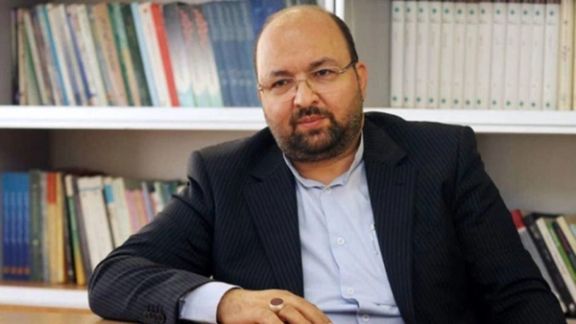
This comes while nearly all Iranian politicians who have talked about restoring people's trust in the political system in the aftermath of six months of nationwide protests, have suggested that the regime should facilitate political participation and allow reformist candidates to run. Nonetheless, Iranians who took to the streets in protest against the regime made it clear in their demonstrations that they no longer trust reformist or conservative politicians and parties.
When a reporter pointed out that an apology by Iran's conservatives would be an unprecedented political act in Iran, Emam said "not only the conservatives, but all the three powers of the government who are responsible for the current situation and the people's dissatisfaction by furthering non-competitive elections and bringing about the country's worst economic crisis and its international isolation should apologize to people."
Emam further made it clear that "the Judiciary, the parliament, the executive body, the Guardian Council and the Assembly of Experts share responsibility for the current crisis and should be accountable before the nation."
He added that the current situation is the price the government is paying for ignoring the reformists and pushing them aside from the country's political arena.

While Emam is asking for an apology, Javad Hosseini-Kia, a conservative lawmaker has said that members of parliament are prevented from impeaching President Ebrahim Raisi’s ministers in the light of the worsening economic situation.
"Majles Speaker Mohammad Bagher Ghalibaf stops impeachment motions and stresses that it is not an expedient move," he told local media.
He added that the people have serious complaints about the performance of the ministers of economy, housing and industry because of their inefficiency and failure to stand by the promises they made to the nation when the Raisi administration took office in 2021. He also blamed the Planning and Budget Organization for most of the country's economic problems.
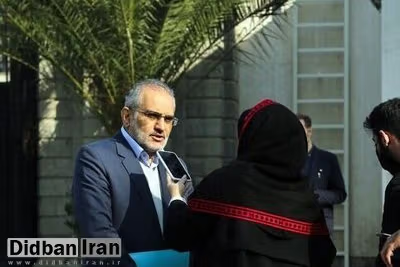
On the other hand, Vice President for Parliamentary Affairs Mohammad Hosseini denied any problem between the government and the parliament, and added that lawmakers lack any motivation to impeach the ministers. Hosseini claimed that there have been only two calls for impeachment during the past 18 months.
However, the senior Raisi aide acknowledged that "there are still several impeachment motions in progress, but we have to wait for due legal process. However, I have talked with the lawmakers who initiated these motions, and it appears that they no longer have any motivation to continue the effort."
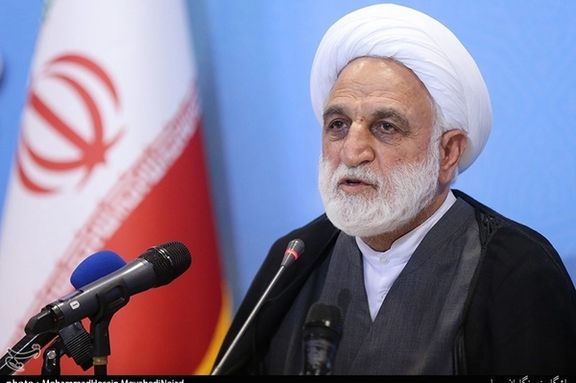
Iran’s Chief Justice Gholamhossein Mohseni Ejei warned of strict punishment for women flouting hijab rules.
As the regime continues to fight a losing battle against the hijab rebellion, he said Saturday that “removing hijab is considered as enmity with values” and people who do not obey the rule will be "punished".
As the number of Iranian women defying compulsory hijab rules are on the rise, regime officials keep warning them that the Islamic Republic will not back down on the dress code.
He further threatened to prosecute women who appear in public unveiled, saying that “unveiling is tantamount to enmity with (our) values. [Those] who commit such anomalous acts will be punished and prosecuted without mercy,” however he declined to mention what the punishment entails.
Elsewhere in his remarks, Ejei added that law enforcement forces are “obliged to refer obvious crimes and any kind of abnormality that is against the religious law and occurs in public to judicial authorities”.
Following the death in custody of 22-year-old Kurdish girl Mahsa Amini for ‘improper hijab’ in September, a growing number of Iranian women and girls have been ditching their veils during the nationwide protests.
Iranian women now are risking arrest by going out without headscarves in public places, streets, malls, shops, banks, cafes, and even airports.
The comments by Iran's chief justice follow warnings from the interior ministry reinforcing the regime’s compulsory hijab law.
Hijab was described in the statement as one of the “foundations of the civilization of the Iranian nation” and “one of the practical principles of the Islamic Republic.”
It also called on the ordinary citizens to confront the women who refuse to wear hijab.

Two Iranian-born Pakistanis accused of an Iran-funded terror plot targeting a Jewish community center in Athens were allegedly offered 15,000 Euros.
The attack was discovered in a joint operation between Greek security services and Israeli intelligence agency, Mossad.
According to reports in Israeli media, the pair, who crossed into Greece illegally from Turkey, had been enticed by the financial reward, a claim corroborated by Greek authorities.
Greek Public Order Minister Takis Theodorikakos said earlier this week: “From the evidence we have obtained, the motivation appears to be financial. The organizer they consulted with was a fellow countryman in Iran,” he said, speaking to Antenna television.
It is the latest such incident in which Iran-funded agents target Jews and Israelis. In June last year, a group of Israeli tourists were airlifted out of Istanbul just moments before Iranian-funded terrorists committed a terror attack in the Turkish capital.
Israel’s Prime Minister Benjamin Netanyahu released a statement this week reiterating the ongoing threat to Jews and Israelis by “an extensive Iranian network run from Iran and spanning many countries".
Greek authorities named the suspects as only Haydar, 27, and Hussein, 29. They are wanted along with three other Pakistanis in Athens, part of a terror cell masterminded and funded from Tehran.
The suspects both entered Greece illegally from Turkey and had been in the country for at least four months.
It is possible further attacks were being planned, with a third suspect discovered outside Greece, and charged in absentia.

The US has decided to extend the deployment of the George H.W. Bush carrier strike group after last week's deadly attacks by Iran-backed forces.
The decision likely means the Bush strike group and its more than 5,000 US forces, which are now in the European Command operational area, will not be returning to home port in the United States on schedule.
US Central Command (CENTCOM) spokesperson Colonel Joe Buccino said: ”The extension of the George HW Bush Carrier Strike Group, inclusive of the USS Leyte Gulf, the USS Delbert D. Black, and the USNS Arctic, allows options to potentially bolster the capabilities of CENTCOM to respond to a range of contingencies in the Middle East.”
Buccino also noted a scheduled, expedited deployment of a squadron of A-10 attack aircraft to the region at a time when many of the country’s forces had been hoping for a withdrawal after an eight-year US deployment where along with Kurdish-led partners, the US is battling against the remnants of Islamic State
News of the deployment came a day after the Pentagon doubled its tally of American troops wounded in last week's attacks in Syria to 12, following the diagnosis of six US military personnel with traumatic brain injuries. The attacks also killed an American contractor and injured another.
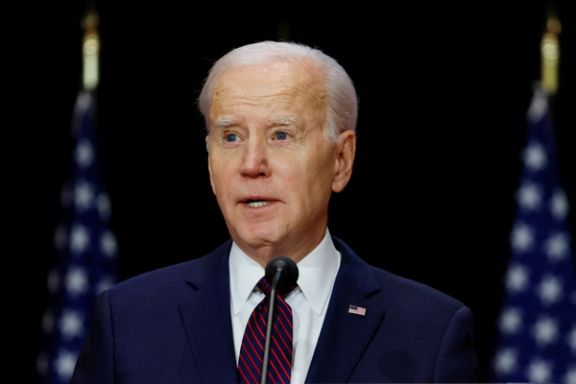
President Joe Biden warned Iran last week that the United States would act forcefully to protect Americans. The Pentagon has estimated eight militants were killed during retaliatory US airstrikes against two Iran-linked facilities in Syria during the tit-for-tat exchanges triggered by the first March 23 attack against a US base near the Syrian city of Hasaka.
Meanwhile, a senior member of the Russian military has called the US actions in Syria “provocative”. Russia, which wants the US presence removed from the area to allow it greater control, accused US forces of being spotted in areas outside the agreed zones.
Hundreds of ISIS fighters remain camped in desolate areas where neither the coalition nor the Syrian army exert full control. Russia - which together with Turkey is carrying out joint patrols in northern Syria - has agreed special zones where the coalition can operate.
Russian Rear Admiral Oleg Gurinov, head of the Russian Reconciliation Centre for Syria, told Russian news agency Tass that US forces had been spotted twice in areas which lay outside the agreed zones.
"Provocative actions on the part of US armed forces units have been noted in Hasaka province”, adding that the Russian side has lodged a protest with the coalition.
Russia intervened in the Syrian Civil War in 2015, tipping the balance in President Bashar Al-Assad's favour, leaving in its wake a complicated power struggle. Moscow has since expanded its military facilities in the country with a permanent air base and naval base.
Clearly aligned with Iran, which is supplying Russia with drones being used in its invasion of Ukraine, a Russian presence only strengthens Iranian influence in a region where Iranian proxies continue to wreak havoc.
Of 83 attacks in Iraq and Syria since President Joe Biden took office, just four retaliations have taken place, according to the Pentagon.
Republican lawmakers have demanded a more forceful deterrence against the Iranian regime, arguing that weak responses will invite more attacks on US forces.
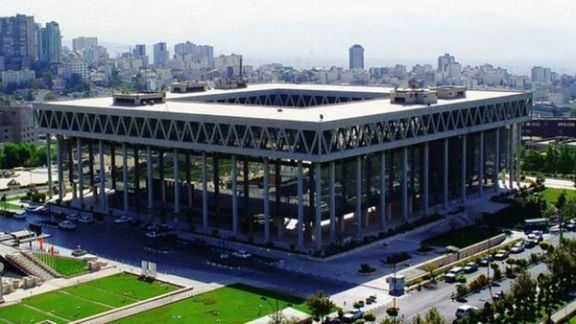
Reformist commentator and seasoned journalist Abbas Abdi says the "Iranian state television is not a media outlet. It is a propaganda tool that has lost its influence."
Speaking to Jamaran News website, Abdi said that that the Iranian state TV wishes to be the only organization that sends messages to the people, but this is no longer possible.
Abdi argued that the state TV disseminates its ideological and propaganda programs and foreign-based Persian speaking media broadcast a different message, but it is the public who decides which one to follow and believe.
"Any media outlet that is used as a tool for political propaganda will lose its influence," Abdi said, adding that "the fact that the state TV sends messages does not mean that the nation will necessarily get those messages. The public in Iran has its own expectations and awaits messages that are based on those expectations." That probably is why the audiences welcome the messages that come from foreign-based media particularly when there are very few independent media outlets in Iran , he said.
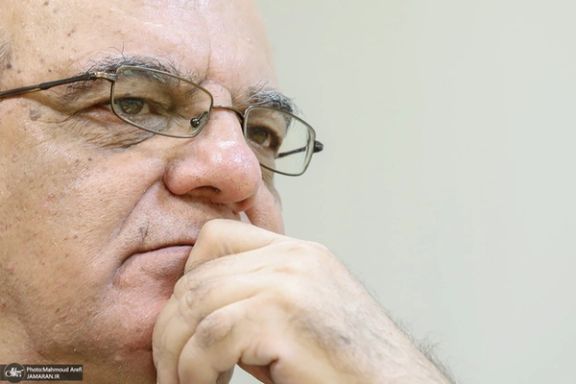
Abdi said, "Twenty years ago we used to tell the government that you cannot stop satellite television. Now we tell the officials that you cannot stop the Internet." He added that trying to stop the Internet is a mistake. "When the official media of a country is as inefficient as Iran's state TV, naturally foreign-based media take the lead," he said.
He further added, "The state television's performance is based on presenting narratives, not truth. And it fails to understand that five different reporters might tell the truth in five different ways without telling lies. The main material the media use is the truth."
Abdi said that social media have removed the borders between Iran and other countries. Nonetheless, what it presents is not exactly the truth or the whole truth. Those who are on social media do not necessarily represent the whole population. "It would be a mistake to generalize what you see on social media," he warned. "For example, social media has portrayed regime change as an easy task." He reminded that "You could be active on social media without your comments costing you too much. Of course, social media are part of the society, but you cannot reduce the society to what is going on social media platforms."
Abdi added that one of the reasons why social media are so effective is that the real world has many problems. Currently, he stressed, the Iranian government has lost the war of narratives to foreign-based media.
A March 30 report on Khabar Online website assessed a talk show on state TV which tried to give voice to Iranian intellectuals and academics in the aftermath of recent protests giving them an opportunity to offer their solutions for the dangerous political impasse. However, according to Khabar Online, it appears that open-mindedness did not last more than two months on the Iranian state TV.

In one program, sociologist Taghi Azad Armaki observed that the middle class as part of the society that could have mediated between the government and the rest of the population no longer exists, because of growing poverty. In another program academic Mohammad Fazeli called on the fundamentalist government to understand Iran's modern society and stop intervening in people’s private lives.
As the broadcast of the program stopped after some 8 weeks and the state TV returned to its unilateral rhetoric against the people and their civil liberties, this could mean that the government is not interested in listening to well-wishing voices.
This once again recalls Abdi's statement about the Islamic Republic's defeat in the war of narratives, and the state TV's solution, like always is typical of government officials: Ignoring the problem rather than bothering to solve it.